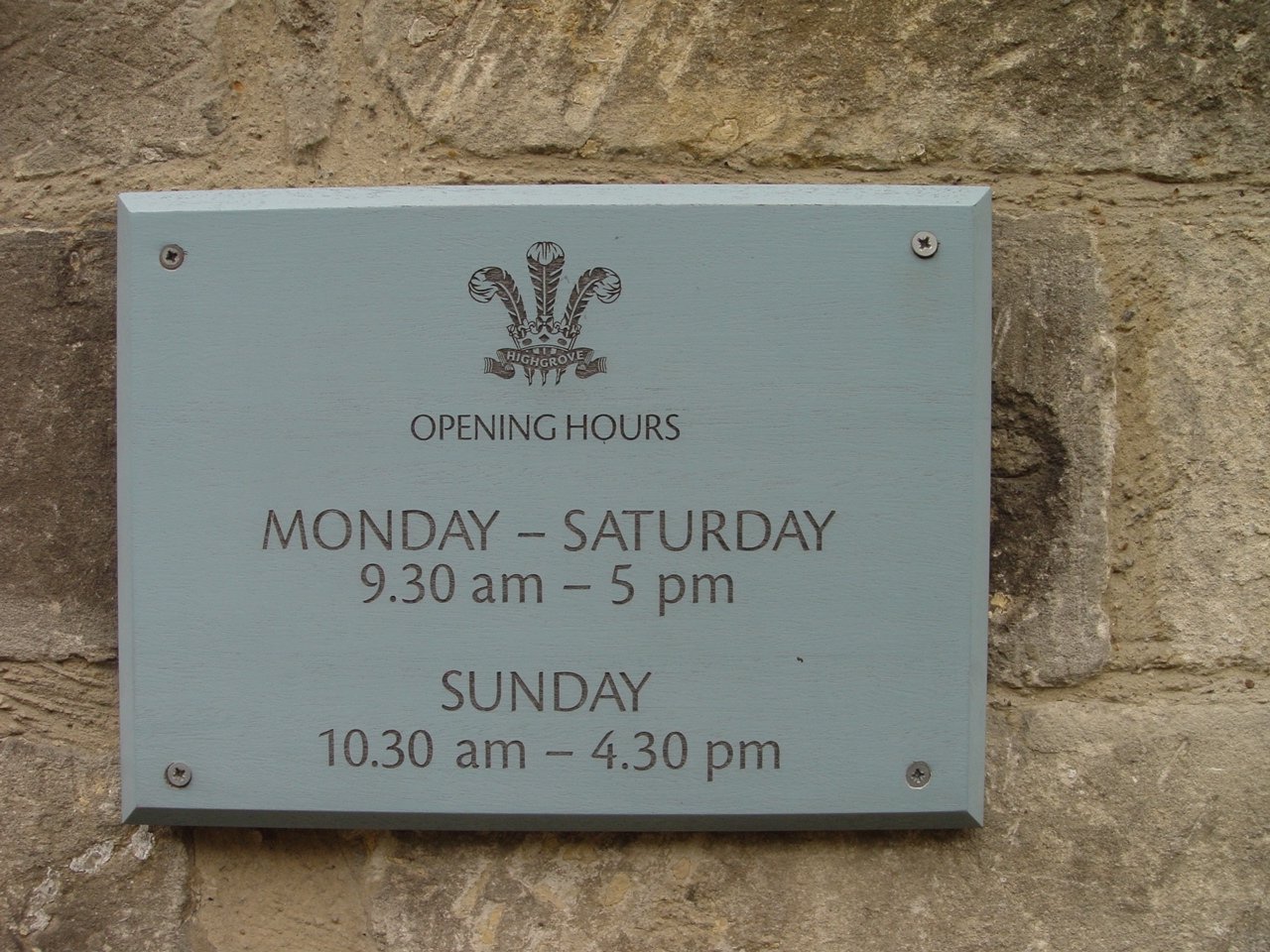What are London Opening Times & UK Holiday Dates?
Opening Hours:
What Are London Opening Times? London’s opening times vary greatly, reflecting the diverse nature of its attractions, retail establishments, and markets. Major attractions like the Tower of London adhere to set daily hours, typically to accommodate a large number of visitors and ensure consistent operation. Shops across the city often follow a general pattern of opening around 10am and closing around 6pm, though this can differ significantly, and Sunday hours often vary, with many shops opening later or closing earlier.
General Guidance to Opening Hours in London
- Important Note: These are general patterns. You must always check the official website of the place you plan to visit before your trip, as hours can change due to holidays, private events, or seasonal adjustments.
| Category | Typical Weekday (Mon-Thu) Hours | Typical Weekend Hours | Key Exceptions & Important Notes |
|---|---|---|---|
| Museums & Galleries | 10:00 – 17:30 or 18:00 | Similar to weekdays; often equally busy. | Late Openings: Many major museums (e.g., V&A, Science Museum, National Gallery) stay open until 21:00 or 22:00 one night a week (often Fri or Sat). Closure Day: Most major museums are open daily, but some smaller ones may close Monday or Tuesday. |
| Public Buildings (e.g., Libraries, Town Halls) | 09:00 – 17:00 | Mostly closed, or limited hours (e.g., 10:00 – 14:00). | Core hours for services like council offices are typically Mon-Fri, 9-5. They are closed on national public holidays. |
| Pubs | 11:00 – 23:00 | 11:00 – 00:00 (Fri/Sat often later, until 00:30 or 01:00) | Sunday Hours: Traditionally 12:00 – 22:30, but this is now less strict. Many open at 11:00 or 12:00 and close at 23:00. Last Orders: The bar will call “last orders” 20 mins before closing time. Pubs with a garden often have shorter hours for outdoor service. |
| Restaurants | Lunch: 12:00 – 15:00 Dinner: 17:30/18:00 – 22:00/23:00 | Dinner service often extends later, until 23:00 or midnight. | Hours can vary hugely by cuisine and location. Many close between lunch and dinner service. It is essential to book in advance for popular spots, especially for dinner on weekends. |
| Major Attractions (e.g., London Eye, Tower of London) | 10:00 – 18:00 | 10:00 – 18:00 or later; often busiest days. | Seasonal Variations: Hours are significantly longer in summer (e.g., Jul-Aug) and shorter in winter (e.g., Dec-Jan). Last admission is usually 45-60 mins before closing. |
| Shops (High Street) | 09:00 – 19:00 | 10:00 – 18:00 (Sun often 12:00 – 18:00) | Late Night Shopping: Many shops on Oxford St, Regent St, and in Covent Garden stay open until 20:00 or 21:00 on Thursdays. Sunday Trading Law: Larger shops are restricted to 6 hours of opening on Sundays, usually 12:00 – 18:00. Small corner shops are open longer. |
| Theatres | Evening performances at 19:30 | Matinees at 14:30 or 15:00; Evening at 19:30 | Matinee Days: Typically on Wednesdays, Thursdays, and Saturdays. Box Offices: Usually open from 10:00 until shortly after the performance begins. |
| Parks & Royal Parks (e.g., Hyde Park, Regent’s Park) | Open from: 05:00 or 06:00 Close at: Dusk (time varies seasonally) | Same as weekdays. | Closing times are strictly enforced and change monthly. Large parks like Richmond Park may have different hours for vehicle access. |
Key Tips for Planning Your Visit:
- Check Websites: Always double-check the official website for the most accurate, up-to-date information, including last admission times.
- Book Ahead: For restaurants, major attractions, and theatres, booking online in advance is strongly recommended. It often saves time in queues and can save money.
- Public Holidays: Be extra vigilant about checking hours on UK public holidays (Bank Holidays), as many establishments may operate reduced Sunday hours or be closed entirely.
- “Last Admission”: This is a critical time for attractions and museums. This is when the last guests are allowed to enter, not when the venue closes. You will often be turned away if you arrive at 16:58 for a 17:00 last admission.
- The 10% Rule: It’s common for pubs and restaurants to stop serving food 30-60 minutes before the stated closing time.
- London’s public transport fares operate on an off-peak pricing structure throughout the entire day on public holidays. This applies to all Tube, bus, DLR, London Overground, and most National Rail services within the city. Travellers benefit from the cheaper, off-peak rate at all times, making journeys more affordable. It is a convenient policy for both residents and visitors exploring the capital on these quieter, non-working days.
Markets, such as the famous Portobello Road Market, operate on unique schedules, often concentrated on specific days of the week, adding to the city’s vibrant weekend atmosphere. Given this complexity, it is always advisable for visitors to check the specific venue or establishment’s website or official online resources before planning a visit, to avoid disappointment and ensure they can make the most of their time in London.
Clubs and Nightclubs:
- Opening times vary but generally open from around 9:00 PM or 10:00 PM and close in the early hours of the morning, usually between 3:00 AM and 6:00 AM.
- Clubs in London often have significantly later opening hours, particularly on weekends, to cater to the city’s vibrant nightlife scene. These extended hours allow patrons to enjoy music, dancing, and socializing well into the night. In some cases, and especially at certain venues, clubs may stay open until sunrise, providing a continuous experience for those who wish to celebrate or unwind in the late hours. This practice is common in many of London’s entertainment districts.
What are London Opening Times & UK Holiday Dates?
Public & Religious Holidays?
Public and religious holidays observed in the United Kingdom are highly significant and important occasions that provide both domestic citizens and international tourists with unique and valuable insights into the multifaceted nature of the country’s diverse culture, rich traditions, and extensive heritage, offering a deeper understanding of the values and beliefs that shape British society. These holidays serve as focal points for communal gatherings, celebrations, and observances, often reflecting historical events, religious beliefs, and long-standing customs that have been passed down through generations.
Public Holidays.
- New Year’s Day (January 1st): The first day of the Gregorian calendar, celebrated with gatherings, parties, and fireworks.
- Easter: A Christian holiday commemorating the resurrection of Jesus Christ, observed with religious services, Easter egg hunts, and family gatherings. Good Friday and Easter Monday are public holidays.
- May Day (First Monday in May): Celebrated with various festivities, including maypole dancing, Morris dancing, and community events.
- Spring and Summer Bank Holidays: Typically observed on the last Monday in May and the last Monday in August, these holidays mark the beginning of summer and the end of summer, respectively. They are associated with outdoor activities, festivals, and family outings.
- Christmas Day (December 25th) and Boxing Day (December 26th): Christmas is celebrated with religious services, gift-giving, festive meals, and decorations. Boxing Day is a public holiday marked by relaxation, sports events, and shopping sales.
What are London Opening Times & UK Holiday Dates?
Religious Holidays.
The United Kingdom is home to a diverse array of religious communities, each with its own distinct set of beliefs, practices, and traditions, and religious holidays are observed by their respective adherents, playing a crucial role in the spiritual lives of these communities and providing important opportunities for worship, celebration, and communal gathering.
These holidays serve as significant markers within the calendar, reinforcing faith, commemorating key events, and fostering a sense of shared identity among believers. Some of the most significant religious holidays in the UK, deeply embedded in the traditions of various faiths, include:
- Christmas: Celebrated by Christians as the birth of Jesus Christ, Christmas is a widely observed holiday with religious services, decorations, and festive traditions.
- Eid al-Fitr and Eid al-Adha: Celebrated by Muslims, Eid al-Fitr marks the end of Ramadan (the Islamic holy month of fasting), while Eid al-Adha commemorates the willingness of Ibrahim (Abraham) to sacrifice his son as an act of obedience to God.
- Diwali: Celebrated by Hindus, Sikhs, and Jains, Diwali, also known as the Festival of Lights, symbolizes the victory of light over darkness and good over evil. It is marked by fireworks, decorations, and festive meals.
- Passover and Hanukkah: Celebrated by Jewish communities, Passover commemorates the liberation of the Israelites from slavery in ancient Egypt, while Hanukkah commemorates the rededication of the Second Temple in Jerusalem.
For In Depth Information on the Above Religious Events, or Other Religions please reference Wikipedia.
Tourists visiting the UK during public and religious holidays have a unique opportunity to truly immerse themselves in the country’s rich cultural tapestry, actively participate in vibrant festive events, and witness traditional customs and rituals firsthand, gaining a deeper appreciation for the nation’s heritage.
These periods often showcase the country at its most colorful and lively, with communities coming together to celebrate their shared traditions. However, it’s also very important for tourists to be aware that some businesses, attractions, and services may have altered opening hours or temporary closures during these holidays, and that public transport schedules could also be affected, so careful planning ahead is advisable to ensure a smooth and enjoyable travel experience.
Other Posts Related To This Article:-
- Is London a Safe Place for Tourists to Visit: What Safety & Security Should I Think About
- How To Respect Customs, Traditions & Languages When Visiting London.
- Custom In London & Do I Need Travel insurance?








